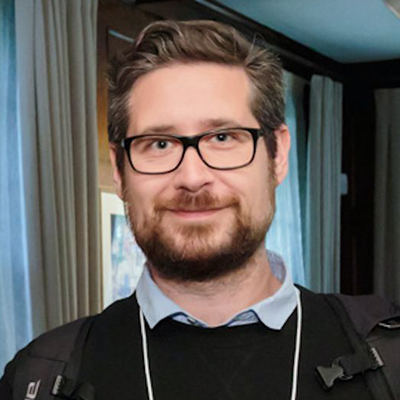Remote Regulation of Local and Peripheral Immunity by Commensal Protozoa
As part of our Monday seminar series, we are delighted to welcome our speaker:
Arthur Mortha, PhD
Assistant Professor, Department of Immunology
University of Toronto
Hosted by
Sonya MacParland, PhD
How to join
An email including Zoom link will be sent to the LMP community.
If you are not part of LMP and wish to join, please contact:
Louella D'Cunha
Speaker: Arthur Mortha, PhD
 Dr. Arthur Mortha studied Biology and Chemistry at the Friedrich Alexander University in Erlangen, Germany, where he obtained a Master’s in Biology working on the regulation of B cell antigen-receptor selection at the pre-B cell receptor level.
Dr. Arthur Mortha studied Biology and Chemistry at the Friedrich Alexander University in Erlangen, Germany, where he obtained a Master’s in Biology working on the regulation of B cell antigen-receptor selection at the pre-B cell receptor level.
He then conducted his PhD thesis in the laboratory of Professor Andreas DIefenbach at the Albert-Ludwigs University in Freiburg Germany in 2011, where he contributed to the identification, developmental and functional characterization of a new lymphocyte subset now known as natural cytotoxicity receptor-expressing innate lymphoid cells or ILC3s. His investigations revealed a critical role for the transcription factor “ROR gamma t” in controlling the development of these cells. ROR gamma t positive ILC3 supported intestinal epithelial homeostasis through their production of IL-22. His work also demonstrated that the transcriptional program driven by ROR gamma t was not stable and could generate inflammatory ILCs that promoted inflammatory bowel disease. These findings were published in Nature Immunology and Immunity.
Dr. Mortha then proceed to join the laboratory of Professor Miriam Merad at the Mount Sinai Hospital in New York, an expert in the field of myeloid cells to understand how the crosstalk between ILCs and myeloid cells could synergize to maintain a healthy intestine.
He was able to demonstrate that gut macrophages are critical in sensing intestinal commensals and this recognition promoted ILC3s to produce a myeloid growth and differentiation factor call GM-CSF. ILC3-derived GM-CSF in turn was sufficient to promote the functional reprogramming of dendritic cells that generated regulatory T cells specific to orally ingested antigens. These findings were among the first to demonstrate how the gut microbiome instructs tolerance to food antigens.
Following his interest in the gut microbiome, Dr. Mortha, identified a previously unknown commensal microbe called Tritrichomonas musculis with superior abilities to reshapes the intestinal immune landscape following colonization. The underlying immune changes exacerbated autoimmune-mediated intestinal inflammation while suppressing pathogen driven pathology suggesting a possible role for protozoan commensals to serve as “natural antibiotic”.
Dr. Mortha opened his lab in late 2016 as assistant professor in the department of immunology, University of Toronto.
His current research program aims at understanding the developmental diversity and specification of mucosal macrophages and innate lymphoid cells. His lab further has a strong interest in dissecting host-microbiome interactions and their impact on the outcome of autoimmunity and host-defense across several gut-tissue axes.
